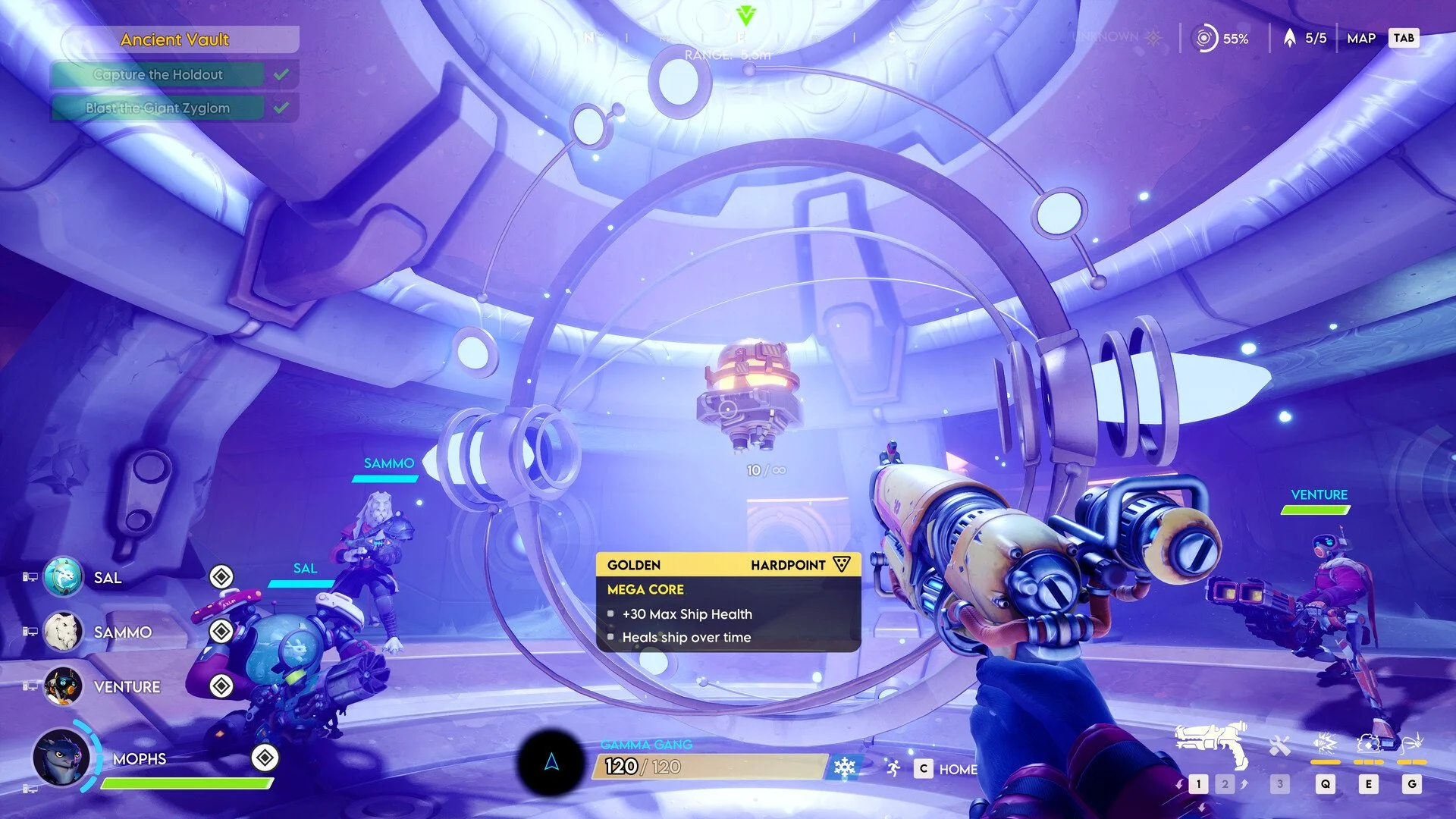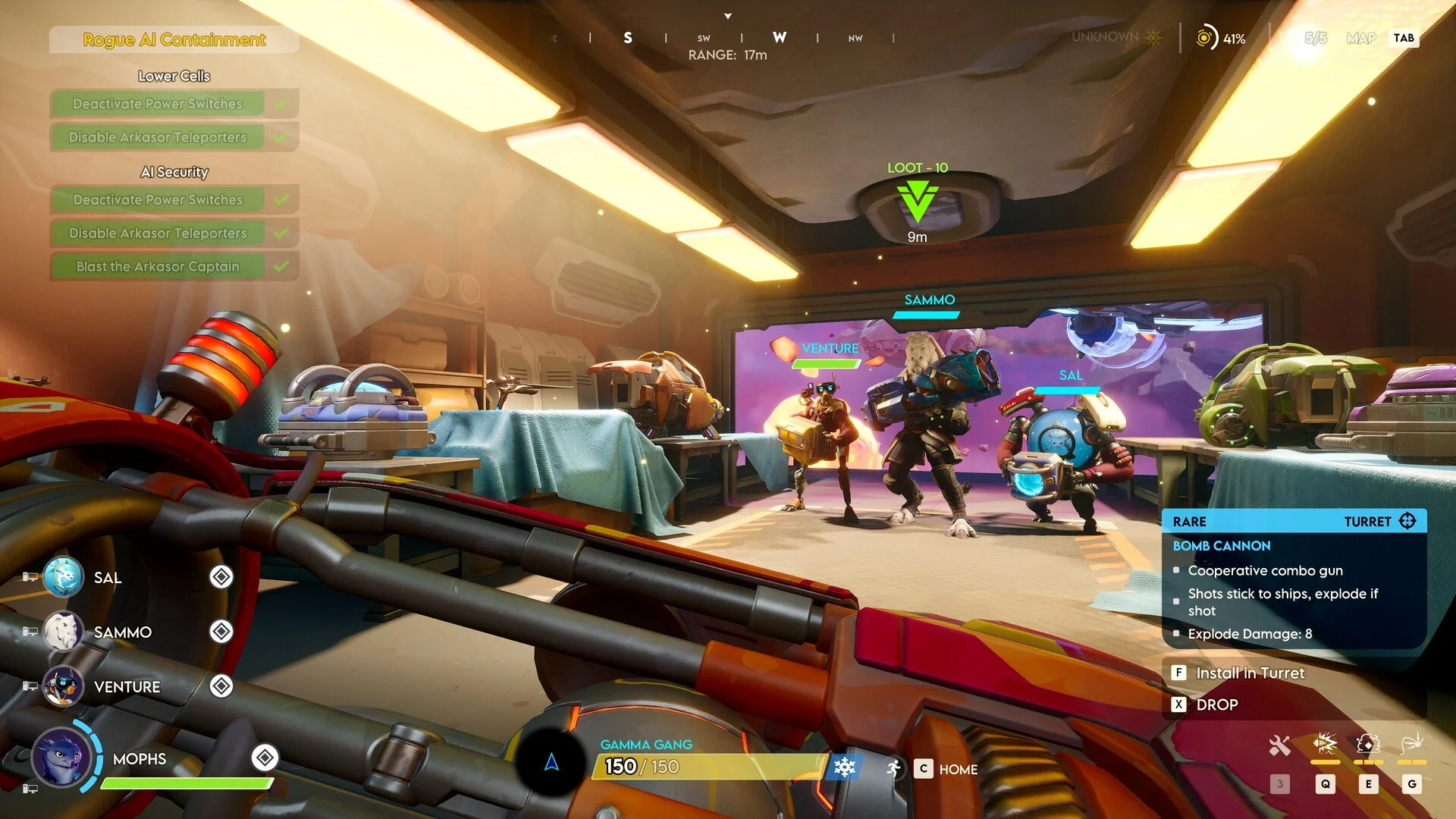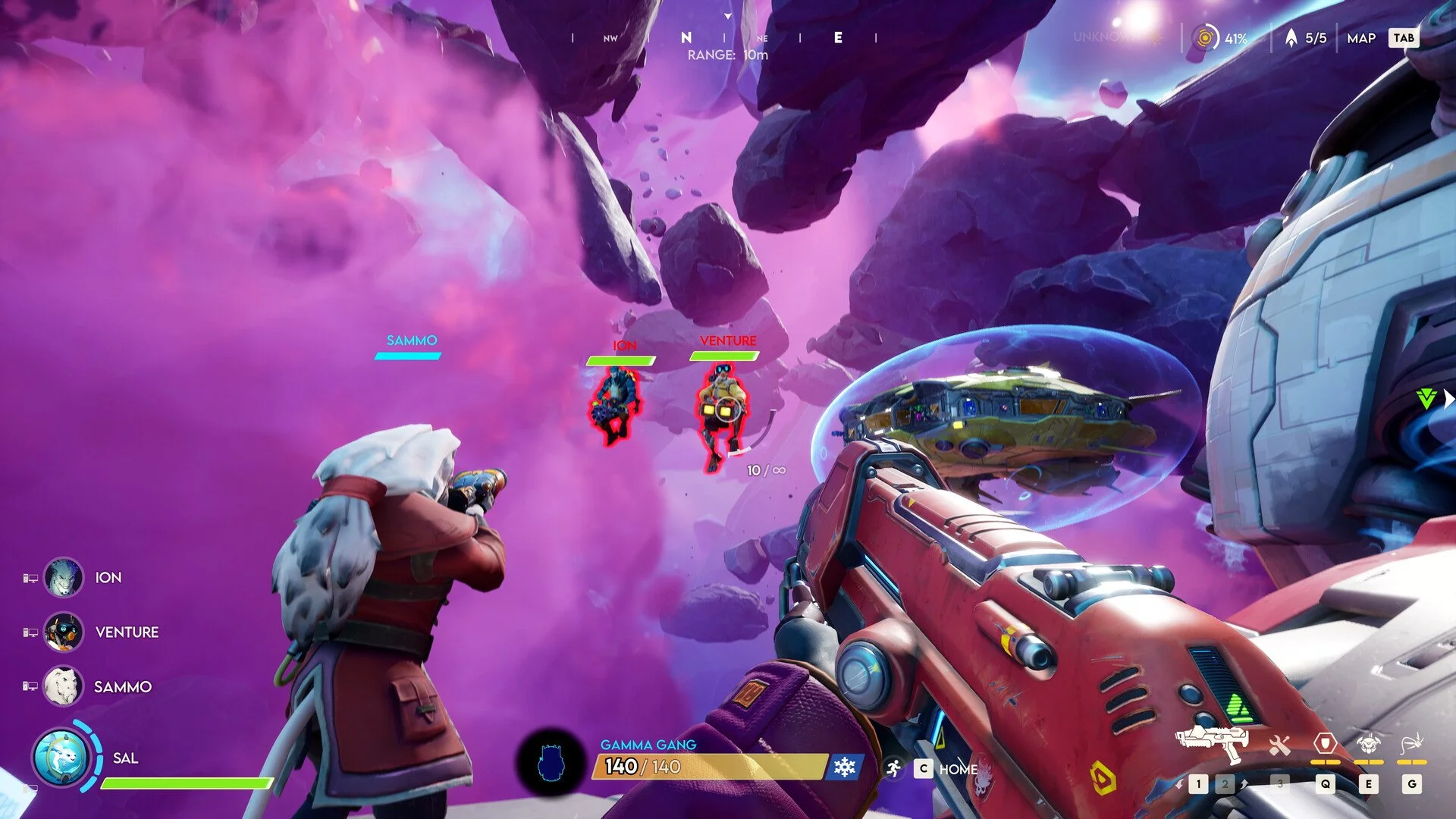Wildgate Review: A Fun Team-Based Space Shooter with Troubling Monetization
Every so often, a game comes along that feels like a flashback to a better time. A time before every multiplayer match was a desperate struggle for ranked points, before meta-slave strategies choked the life out of experimentation. Wildgate is one of those games. It’s a brilliant, beautiful machine for generating chaos, a sandbox of space piracy that has given me some of the most memorable moments of pure, unadulterated fun I’ve had in years. It’s also a game that seems to be doing its damnedest to sabotage its own goodwill with some truly baffling decisions.
Anarchy in the Aether
At its heart, Wildgate is a masterpiece of emergent gameplay. You and your crew are thrown into a vast, procedurally generated star system with a simple goal: get the priceless Artifact and escape, or be the last ship flying. What happens between the start and that finish is a glorious, unpredictable mess of ship-to-ship cannonades, frantic repairs, and devious boarding actions. The core loop feels less like Sea of Thieves in space and more like a playground for interstellar criminals.
The Chaos Engine
This is a game where the best-laid plans go out the airlock, and that’s where the magic lives. I’ve had matches where we lured an enemy crew into a dense asteroid field only to have space vermin chew through our hull while we weren’t looking. I’ve stealthily boarded an enemy ship mid-fight, shut down their shields from the inside, and listened to the panicked screams over prox chat as my crew’s cannons tore them to shreds. In one legendary match, my crew, low on ammo and with the last enemy ship between us and victory, simply strapped eight clamp jets to our hull and blasted past them at 800m/s to reach the Wildgate. These aren't scripted setpieces; they are stories you earn through creativity and deviancy.
A Crew of Your Own
Let me be perfectly clear: this is a game you play with friends. When you have a full crew on comms, all working together, Wildgate is sublime. The pilot calling out maneuvers, the gunners coordinating fire, the engineer screaming about a fire in the reactor room while fending off boarders. It’s a symphony of cooperative chaos that few games ever achieve. The ship combat is meaty and strategic, the on-foot gunplay is satisfying, and the feeling of pulling off a perfect heist on an enemy vault is second to none.
Houston, We Have a Problem
Unfortunately, that symphony falls apart the second you try to play with randoms. The parts of this game that are brilliant with a coordinated crew become sources of pure agony when you’re flying solo. This game desperately needs a social infrastructure it simply doesn’t have at launch.
The Solo Queue Suicide Mission
If you don't have three friends ready to go, prepare for pain. I’ve queued into so many matches where the ship doesn't even move because no one wants to pilot. I’ve had teammates without mics who decide the best time to practice their EVA skills is during a critical firefight. In one rage-inducing match, a random teammate grabbed the controls as we were about to enter the Wildgate with the artifact and deliberately turned us away, throwing the entire game for no reason other than a laugh. Without a role queue or some kind of reputation system, playing with randoms is like playing Russian roulette with four of the five chambers loaded.
An Empty, Unbalanced Expanse
Beyond the social problems, the game world itself feels undercooked. The map is often too large for the five ships in it, leading to long stretches of boring downtime as you fly through empty space looking for something to shoot. The balance also feels wonky. The ability to teleport off an enemy ship mid-combat feels far too forgiving, turning most encounters into chaotic boarding actions rather than the epic ship duels the game seems to promise. This makes actual ship weaponry feel secondary to just getting a man on their deck.
The Elephant in the Airlock
Now, let's talk about the most cynical part of this entire package. For a game made by a studio of ex-Blizzard developers trying to foster a "by gamers, for gamers" narrative, the monetization is a slap in the face. It’s a full-price, buy-to-play game that has the gall to launch with an in-game store that would make a free-to-play gacha game blush.
The Virtual Currency Con
I have no problem with cosmetic skins. Developers have to eat. What I have a problem with is the predatory use of an intermediary virtual currency. This is a practice that exists for one reason: to obscure the real-world cost of items and trick you into spending more than you intend. There is no player-friendly argument for it. It is inherently hostile. Seeing this system in a game I paid $30 for, selling simple goddamn recolors for upwards of $20, completely shatters any illusion of this being a passion project. It’s a corporate cash grab, plain and simple.
The Verdict
I’m torn on Wildgate. The core of this game is brilliant, a diamond of chaotic, team-based fun that has created some of my favorite gaming memories this year. When you are playing with friends, it is an absolutely essential experience. But that diamond is buried under a mountain of shit. The solo experience is miserable, the game balance needs work, and the monetization model is frankly insulting. There's a phenomenal game here, but it feels like it’s being held hostage by some of the worst impulses of the modern games industry.
Score: 7.9/10


